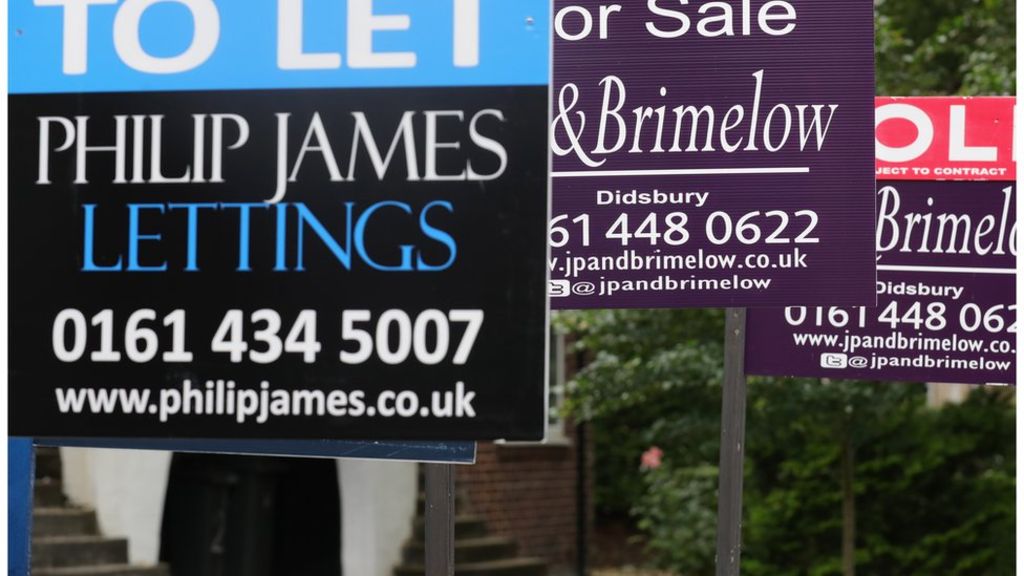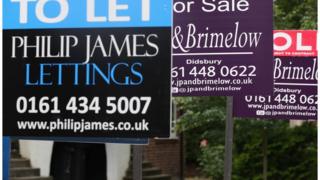House price growth ‘to slow in 2017’ – BBC News

 Image copyright Christopher Furlong
Image copyright Christopher Furlong UK house prices will continue to rise in 2017 but at a much slower rate, according to research from the Halifax.
Britain’s biggest mortgage lender said annual house price growth would be running at between 1% and 4% by the end of the year.
That compared with an average of 10% in March 2016.
Halifax attributed the forecast to a “higher than normal degree of uncertainty” about the economy in 2017, linked to the recent fall in sterling.
The building society said the housing market was likely to weaken in 2017, which, combined with falling affordability would lead to fewer house sales.
The buy-to-let sector is also expected to cool further as new tax rules restrict landlords’ profits.
Halifax said prices in London would slow more sharply than elsewhere, as affordability in the capital was already stretched.
However, the current low cost of mortgages and the ongoing shortage of properties for sale would continue to support prices across the country, it said.
Martin Ellis, Halifax’s housing economist, said: “The housing market is critically dependent on how the wider economy evolves. We consider it most likely that the UK economy will soften over the course of 2017.
Further easing
“This is most likely to result from the weakening of sterling pushing up import costs and dragging on purchasing power, both for consumers and as a determinant of business investment spending.”
With a higher risk of unemployment, rising inflation and “affordability constraints”, housing demand was likely to be curbed, Mr Ellis said.
“These factors, combined with increasing affordability constraints, particularly in London and the South East, are likely to result in a further easing in annual house price growth during the coming year, continuing the trend seen since the spring of 2016.”
The forecast chimes with several other predictions that point to slower house price growth in 2017.
Nationwide Building Society predicts price rises of about 2% next year, while the Royal Institution of Chartered Surveyors has said it expects property values to rise by about 3%.
Read more: http://www.bbc.co.uk/news/business-38449261